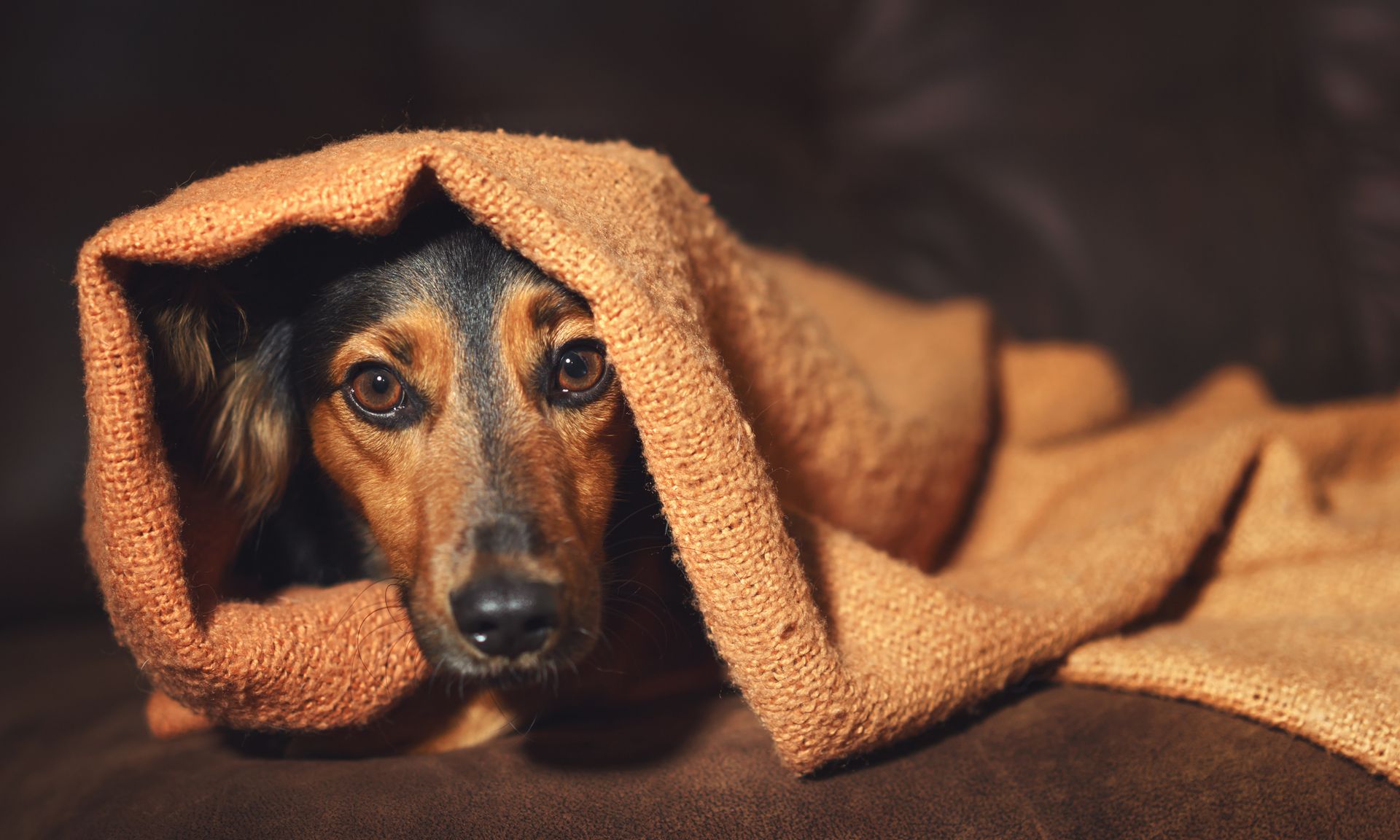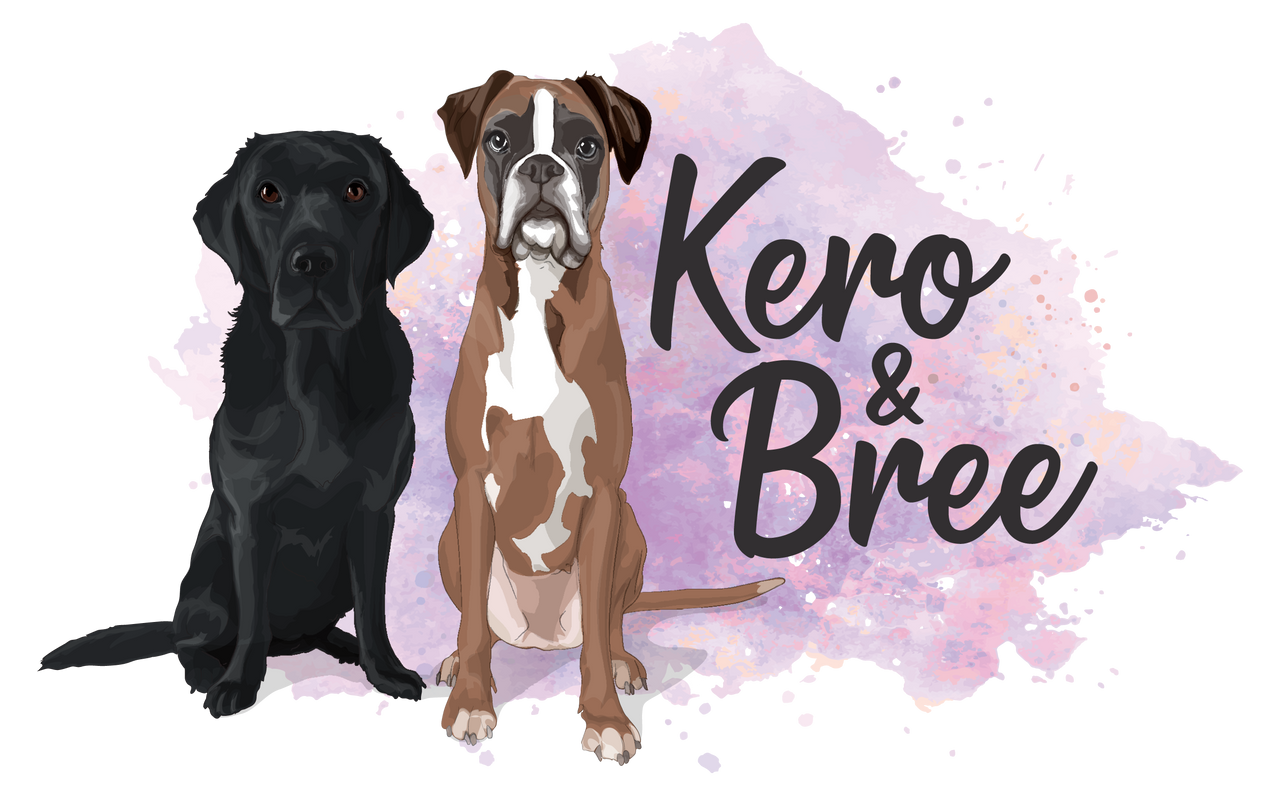
8 tips to keep your dog calm and safe during fireworks
Affiliate disclosure: There are affiliate links on this page. As an Amazon Associate, I earn from qualifying purchases; this means if you click through a link and make a purchase from Amazon, I will receive a commission at no extra cost to you. I only give recommendations for products I know and love. Thank you for supporting Kero and Bree!
Fireworks can be terrifying if you're a dog or any animal for that matter.
According to the RSPCA, the main issues lie with private fireworks displays as opposed to organised local fireworks events.
The reasoning being organised local fireworks events generally receive prior notice and are organised within a specific timeframe meaning they are more predictable making them easier for pet parents to prepare for.
Private displays on the other hand are much more unpredictable which makes it impossible for pet parents to prepare their pets for them.
A 2021 survey conducted by the RSPCA estimated over 68% of animals were impacted by private at-home backyard displays.
To put this into perspective, in 2021 the Pet Food Manufacturers' Association (PMFA) estimated the UK pet population to be approximately 17 million pets.
Sadly, looking at these statistics they show that over 11.5 million pets were impacted by fireworks during this time.
In 2022, the UK pet population is now estimated at approximately 17.4 million pets meaning we’ll likely see an increase in the number of pets affected by fireworks.
Why are dogs scared of fireworks?
Fireworks are a novelty to dogs because they do not often experience them.
In a way, this can be a good thing for our dogs because, thankfully, they do not have to experience them often.
But, on the other hand, it can make them challenging to deal with and a terrifying experience for our dogs on the occasions they do have to experience them.
As we know, fireworks produce flashing lights and various sounds and bangs, which are loud. They also produce unusual smells when let off.
Of course, we understand what is happening, but imagine being a dog who doesn't understand this and how confusing and terrifying it can be. We cannot explain what is happening, so we need to help them cope and comfort them as best we can.
Signs your dog is scared of fireworks
To help you better understand how your dog is feeling and how they cope with fireworks, we're going to look at the different ways your dog may respond to them.
Some signs or ways of coping may be more obvious than others and some may be very subtle. Although please keep in mind that even if your dog does not show any of these signs or coping strategies they may still be scared as they could have their own unique way of coping.
In general, signs and coping strategies can include but are not limited to:
- hiding
- trying to run away or escape
- whining
- excessively barking
- drooling
- trembling
- pacing around
- panting heavily
- lip licking
- not eating
- a change in their toileting habits, e.g. toileting in the house
- seeking reassurance from you or being clingy
How to keep your dog calm and safe during fireworks
For those with dogs scared of fireworks, the number one priority should be to keep them calm and safe. Here are my top tips to help you achieve this and prepare for fireworks.
1. Walk your dog during daylight hours
It may sound like an obvious one, but walk your dog during the day when there are no fireworks. If possible, avoid letting them out when fireworks are likely to go off. However, if they do need out to the toilet, keep them on a lead in case of unexpected fireworks nearby.
2. Ensure your dog feels safe, and isn’t left alone
If you have a dog that is scared of fireworks, do all you can to ensure they feel safe and don't leave them alone in the house.
Close the windows and curtains to help dampen the noise and flashes of the fireworks. Turn on the TV or some calm, soothing music to mask the sounds and make a covered den so your dog has somewhere to go where they can feel safe.
Do not confine your dog to one room or lock them in, as this can cause more harm than good, causing distress to your dog. Instead, let your dog choose where they feel safe. Cuddling up on the sofa with you may be the number one choice, and remember, it's okay to comfort your dog when they feel worried and scared.
A calming wrap or Thundershirt your dog can wear could also be an excellent option to help relieve anxiety symptoms.
3. Make use of passive calming dog enrichment activities
Passive calming dog enrichment activities are activities that have an overall calming effect on your dog.
They employ your dog, keeping them busy, and by the nature of them doing it, they are being calm and keeping their mind occupied on something else. This will help take their focus away from the fireworks.
Avoid anything that is too high-energy, the point is to instil calmness to help them chill out and relax.
Think of natural dog behaviours that help calm your dog - activities like chewing, licking, foraging or sniffing, for example.
Dog enrichment toys and natural dog chews are perfect for this as are scent work and sniffing games.
Remember, calming activities depend entirely on the dog, so what may be calming for one dog may not necessarily be calming for another.
4. Act normally and naturally
Sometimes we can act differently in certain situations, particularly around events like fireworks, as we worry when we see our dogs scared and in distress - sometimes we might not even consciously realise it.
Try to act as normally and naturally around your dog as possible. If we're worried, our dogs can pick up on this, causing them to feel more unsettled. If they see we are calm and collected it will help them feel more settled.
5. Consider using calming supplements and aids
There are some excellent products out there that aim to help calm dogs who are afraid of fireworks. It is worth trialling different ones to find out what works best for your specific dog as results can vary from dog to dog. Here are some examples of calming products I have made use of in the past and you may find helpful to try:
- Calming herbal supplements such as these skullcap and valerian tablets or liquid form valerian compound by Dorwest Herbs.
- Calming products that utilise pheromones such as the Adaptil calming plug-in home diffuser, calming spray and calming collar.
- Calming products that utilise essential oils such as the Pet Remedy calming plug-in home diffuser and calming spray.
6. Speak to your vet
If you know your dog is fearful of fireworks, speaking to your vet beforehand is always an excellent idea. Your vet will talk to you about potential medications they can offer to help, plus they can advise on behaviour management options to prepare for future events.
7. Make your home and garden escape-proof
I recommend making your home and garden as escape-proof as you possibly can. A scared dog isn't always thinking straight and may take any action possible to run away or escape a situation.
Ensure your dog has supervision at all times, and if your dog needs out in the evening to the toilet, it's a good idea to keep them on a lead for safety.
8. Make sure your dogs' ID tag and microchip details are up-to-date
I recommend that you check your dogs' ID tag and microchip details are up-to-date. Sometimes we can make all the preparations in the world, and the unexpected can happen.
Ensuring these details are correct is so important in the event of a dog escaping as it will help the finder contact you quickly to reunite you and your dog.
After fireworks and preparing for future events
After the stressful events of fireworks, it can take time for your dogs' stress levels to come down. It can take 72 hours+ for a dog's stress levels to return to normal, meaning they may be extra sensitive during the period following fireworks.
During this period, give them sufficient time to relax and settle. Take the time to allow your dog to be calm and chilled out. Skip walks if you feel this is appropriate for your dog, and make use of passive calming dog enrichment activities, as these are just as important during fireworks as they are after.
Once everything has calmed down and is back to normal, start preparing for next time with the help of your vet and a qualified behaviourist who only uses kind and positive training methods.
If you liked this article, please share it!
[originally posted 01 Nov 2020, updated 02 Nov 2022]
